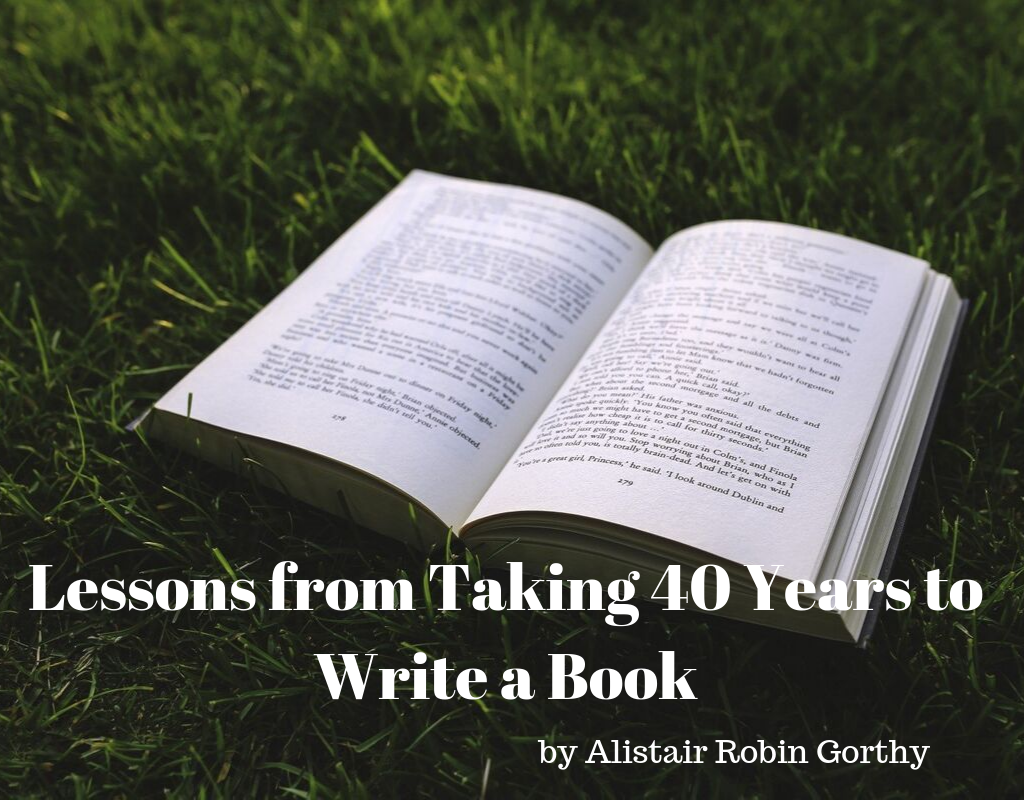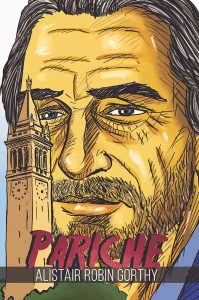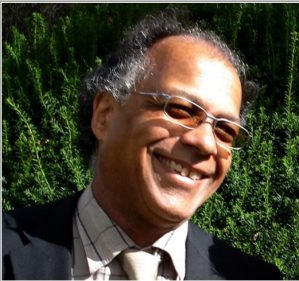by Alistair Robin Gorthy , @RobGorthy
Pariche took over forty years to write – it is, and is not, the same book.
My novel, Pariche, took a long time to write, from the initial germination of an idea, heavily influenced by road-movies then very much in vogue, to what it finally became; the multiple stranded and mixed genre novel it is today. The first point I’d wish to make then is;
- Always be prepared to drastically change – or even give up – an original idea if it’s not working.
Pariche, for example, has gone through many transformations, from the time when it mirrored my younger, dare one say, hippy days, through to those of a more mature reflective assessment of the material. It has been a learning process; something that is ongoing. So, to the next point;
- Always seek out opportunities to learn.
Be prepared to put yourself out there, with friends or other writers, for critical assessment. I read my work slowly, often aloud, to myself and to others. Discuss, and be prepared to amend accordingly. This, though, also comes up against another equally compelling point; you don’t always have to accept the criticism given.
- Don’t give up on being a writer.
It’s your baby, something that has been the product of your creative powers, and it deserves to be heard. The adage is probably true, that there is a book waiting to be written in everyone, but this doesn’t mean that everyone can write. I’d like to think that my writing has improved over the years, and much of this has been because of what I’ve learnt from others. Other things that might be included;
- The adoption of good habits.
This means having, amongst over things, a disciplined work timetable and a routine that keeps all interferences to a minimum. My best writing times are in the morning, but;
- I keep a notebook (or iPad) handy for when the muse strikes.
You can guarantee that you will forget that compelling scene/line/plot detail that you were thinking of if you don’t have the means immediately available to write it down. The number of times this has happened to me when I’ve been in the shower.
- You might like to invest in some writing software, especially if you have a sizeable document with many chapters, characters and multiple strands. The one I use is Scrivener.
- Keep on reading – immersing yourself in other people’s writing helps develop writing skills, along with opening up yourself to the ideas of other writers. Needless to say, you should guard against plagiarism and the filching of work that is not yours.
- Books are not the only source of stimulation.
When writing Pariche there seemed to be a permanent cinema/TV track going through my mind when thinking of the main character, not least a grizzled John Huston somehow morphing into a cross between Dr Jock McCannon in a Very Peculiar Practice and Leo McKern in Rumpole of the Bailey.
Locations can also be equally important. The novel Pariche is set in America and it was important to make this feel authentic. This was partially helped by having a particular interest in America in the first place, but by also ensuring that part of the novel’s setting was as near to my own experience in the UK as possible – New England, for example – or by visiting certain locations.
Example; an important scene setting episode in San Francisco involves Pariche taking in the scene while he contemplates a forthcoming battle with an arch nemesis. Visiting the exact location actually helped me see that anyone following in Pariche’s footsteps would soon be out of breath after such a steep climb. Needless to say, this was added to the script.
One thing not to forget, though, is that, in the end, this writing is about people, and the core qualities and characteristics you see in the people around you are present in everyone. Just make sure you get your research right. That cafe you might want to pop into, for a morning coffee, in a different time and location might be less receptive to your custom.
A step too far for me would be any attempt to mimic the accent or language that characters might use. Personally, I find attempts to recreate so-called authentic language use off-putting. It is very difficult to pull off, can get in the way of a reader’s enjoyment and understanding, and prevents the reader from bringing their own interpretation or feel to the work.
- Let the characters and the storylines loose
Let your character develop their own storylines, something that will help give them greater descriptive depth and as well as giving your overall story multiple strands of interests. Pariche initially started out as a part protest, part self-discovery, road trip. It soon began to develop different academic, romance, political and crime strands, as the different characters were developed, but;
- Have an overall structure to your work
I like to have an overall idea of which direction the novel is going, with most chapters mapped out, each with notes as to what happens. The initial writing of each takes place in notebooks before being transferred and edited in Scrivener. This might involve a change to overall structure and chapter order, depending upon how that chapter develops.
- Let the actors speak for themselves
I tend to divide time between describing scenes and letting the characters set the tone – if you give characters enough space, they, through dialogue and their interaction with others, will allow all manner of ideas and plotlines, but;
- Don’t preach.
I find this most off-putting when I see it in other writers – if you have a point to make, it should be germane to, and not distract from, the plot, and should never make the reader feel that they are somehow being got at, irritated, or condescended to.
- In the end, my golden rule about any writing is; was it a good read?
Rob Gorthy was born Alistair Robin Gorthy in Liverpool and brought up at orphanages in Ebley and Painswick, Gloucestershire. After university in Liverpool he taught in Coventry. He has an MA in Philosophy and Social Theory from Warwick university. He now lives with his partner, Heather, in the Cotswolds, where he writes, enjoys theatre, going for walks in the countryside, and birdwatching. He has an abiding interest in US politics and philosophy, reading good literature, and listening to music (Amadeus through to Zappa).
Copies of the novel, Pariche, can be obtained at all good bookshops or online. The link to his Publisher’s website is below.
https://www.austinmacauley.com/author/gorthy-alistair-robin
Lessons from Taking 40 Years to Write a Book (by @RobGorthy ): Share on X
Photo on Visual Hunt



Congratulations to you, Rob, and thanks for these great tips!
Being able to visit a spot really helps. I’ve visited almost all of the places that my series is set in. A Google Earth after that and I had the details right.
Thank you for sharing your experience and advice. Life lessons worth learning!
Love this post. I have pretty much given up on being published again, BUT I will never give up on writing.
Teresa
Great advice! preachiness turns me off as well!
Congrats, Rob! I appreciate the advice because it can take me years to finish a manuscript with work and other commitments.
Congratulations and best of luck, Rob.
Thanks for the great tips! I also agree to stay away from being preachy. I love to learn lessons from stories, but I don’t want to be beaten over the head with it.
Thank you! So glad that you found it so useful. I look forward to reading and learning from your experiences.
Hi Elizabeth – and Rob … interesting read … while the characters in your book seem real. Interesting you wrote about America, and had obviously spent time there … someone just mentioned this morning that on Monday evening they’d been to hear an author speak … he mentioned his first work was about Namibia – a place he’d never been to … he was told to forget it! It was obvious he knew nothing about Africa, or Namibia … he then knew he had to set his books in places he knew … since then he’s ‘rocked forward with his novels’ … cheers to you both – Hilary
Thanks, Hillary. Yes, visiting or living in a place can give you insights you might not necessarily glean otherwise. Of course it doesn’t always mean that your story will be good or that you’re able to see, or put into words, whatever you come across. But it is research, and most writers should be prepared to put in the work that their story demands. If not overdone, it will pay off in the long run.